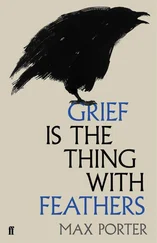After dinner, Maci went back to her room to write. Earlier in the week, she’d had bad news from Philadelphia. Old Mrs. Hale was retiring, and who knew if the next editor of Godey’s Lady’s Book would be as fond as she was of Maci’s writing? She had a special relationship with Mrs. Hale, who’d dealt her a compliment just a few months after they began working together: “Why, you go on so naturally and make so little fuss about your work that I sometimes forget you are a woman.” She might have become a mentor to Maci if she had not always been proving herself a backward thinker — Mrs. Hale insisted, for example, that the vote would be ruinous to the happiness of women.
Hoping to send a big bunch of fatuous articles for the lady to purchase before she retired, Maci kept busy. Night after night, she sat at her desk composing with her right hand, and she found she was able to ignore how her left hand wielded its own pen, sketching, writing, and admonishing. “I’m not looking,” she’d say aloud as she worked. “Scribble all you like, I shan’t cast a glance on it.” But she always did look, eventually. And she’d ask questions, too, when curiosity finally overwhelmed her. “Who is he?” she’d ask, as her hand drew another picture of the ragged little angel, and her hand would write the answer alongside the bizarre-looking wing, Somebody’s brother.
If I told you I was in Hell, suffering eternal punishment because the war made a killer of me, then I know you would believe me. If I predicted that Aunt Amy would die horribly, killed with burning, acid poison by a scarab hatched of eggs dormant in her best cotton dress, I think you would embrace that news. But when I say that the sun will shine tomorrow, you pout and shake your head. When I say we are all undying, that love and grief can bridge the measureless space between us, you think it must be false because it is good, or because it might comfort you. So let me reassure you: I am in a sort of Hell, like every other spirit who has not forgotten the earth, who remembers that we are all creatures afflicted with unremitting desire.
It was the same way that her father had got her to eat new things when she was a child. “Just try it,” he’d say, “and if it is not, after all, to your taste, then you do not have to eat it.” So Maci’s hand told her, Just go, and if it does not suit you, if you find, after all, that their work is not your work, then you may return here to this dreadful life, and I will leave you alone forever. So she left Aunt Amy’s house with the money she’d saved from her articles (faithful Mrs. Hale did, indeed, buy a fat bunch of them), and rode the train to New York, suffering the advances of strange men. It wasn’t enough to keep you respectable, traveling with your dead brother, who lived in your hand.
Maci got a room at the Female Christian Home on East Fifteenth Street. Her first evening there she sat on her bed and thought about her aunt. Maci had sneaked away from the house like a coward, leaving a note that really explained nothing. Aunt, I have urgent business in Philadelphia. She’d thought she would write again from the train, to explain. But she found she was not inclined to write, not on the train, and not in the room she shared with another Christian female, a shovel-faced, opinionless girl named Lavinia. I am wicked, Maci thought to herself, because she was certain that she never wanted to see her aunt again. It made her happy already, just to be away from Boston. But then she would think how she was away at the bidding of her own lunacy, and how she had only enough money to last her for a month or two, and she’d become angry at herself, and she would think, I am wicked and stupid.
On the morning after her arrival in New York, she walked along Broad Street, looking up every so often to meet the disapproving stares of birds perched on the telegraph wires that ran everywhere overhead. She paused outside Number 44. After a few moments, her left hand reached to open the door. She followed along after it, up the stairs to the office of Woodhull, Claflin and Company. Inside, she was met by a man with immense whiskers who sat examining a telegraphic stock indicator where it chattered away near a north window. Maci could hear a similar one running behind a glass-and-wood partition at the back of the room. “May I help you?” he asked.
“I would like to see Mrs. Woodhull,” she said. “My name is Trufant.”
“Ah,” he said, and he smiled. “She’s been expecting you.” Maci hid her surprise, thinking the man had confused her with someone else, because she hadn’t written ahead to announce her visit. The man, who introduced himself as Colonel James Harvey Blood, escorted her to the back. The office was just as it had been described in the Weekly. It was luxurious, with thick rugs thrown over the floors, bushy ferns under the windows, and elegant statuary scattered here and there. Stern Minerva and luscious Aphrodite inhabited two corners of the office, and a third corner was occupied by a piano, atop which sat a bust of Commodore Vanderbilt. Maci stopped in front of it, reaching out to touch Mr. Vanderbilt on his cold, beakish nose, and thought of his son. Against the bust lay a tiny painting, which depicted three little cherubim floating in a rosy sky, holding up a winding parchment upon which was written, Simply to thy cross I cling.
In the back, Mrs. Woodhull and a red-haired lady Maci’s own age were sitting behind twin walnut desks, with gold pens stuck behind their ears. They were talking to a reporter.
“If I were to notice,” said the red-haired lady, “what is said by what they call society, I could not leave my home except in fantastic walking-dresses and ballroom costume. But I despise what squeamy, crying girls or powdered, counter-jumping dandies say of me. We have the counsel of those who have more experience than we, and we are endorsed by the best backers in the city.”
“Do you mean Mr. Vanderbilt?” asked the reporter, a young man with a face so fat and white that Maci had to resist an urge to gather it in her hands and knead it like dough.
“It is very possible that I do,” the lady answered. From a platter on her desk she picked up a strawberry dipped in chocolate and bit into it with abandon. She looked up at the ceiling while juice ran down her chin. The reporter turned to Maci.
“Are you a customer?”
“This is Miss Trufant,” said Colonel Blood. “She’s come to see you, Mrs. Woodhull.”
Maci had composed a statement. It was brief, and perhaps a little elegant, a plea for employment. Here she was, a woman who wrote for newspapers, and there was Mrs. Woodhull, a woman who published one. Didn’t it follow that Mrs. Woodhull should have work for Maci? Maci’s hand had dictated a different statement, something about being a messenger of the spirits of the air. But Maci forgot both statements when the lady looked up and met her eyes. There was something breathtaking about her. It was not just her beauty. She had the sort of grace, Maci decided in that very instant, that arises from absolute independence of mind. Maci found herself unable to speak, but she didn’t have to say anything at all.
“There you are!” said Mrs. Woodhull, jumping up and taking Maci’s hands in her own. “Tennie, here she is! Here she is at last!” Maci’s right hand was limp as a dead fish, but her left hand squeezed back fervently, and trembled with nervous joy.
The lady called Tennie hauled the reporter up by his elbow, pushing him out past the partition and declaring the interview at an end. Then she threw both her arms around Maci, and kissed her on the neck. Maci wanted to ask her to stand back, to scream for her to keep her wet kisses to herself, but when she opened her mouth, Tennie covered it with her own, at which point Maci was too stunned to make any noise at all.
Читать дальше












